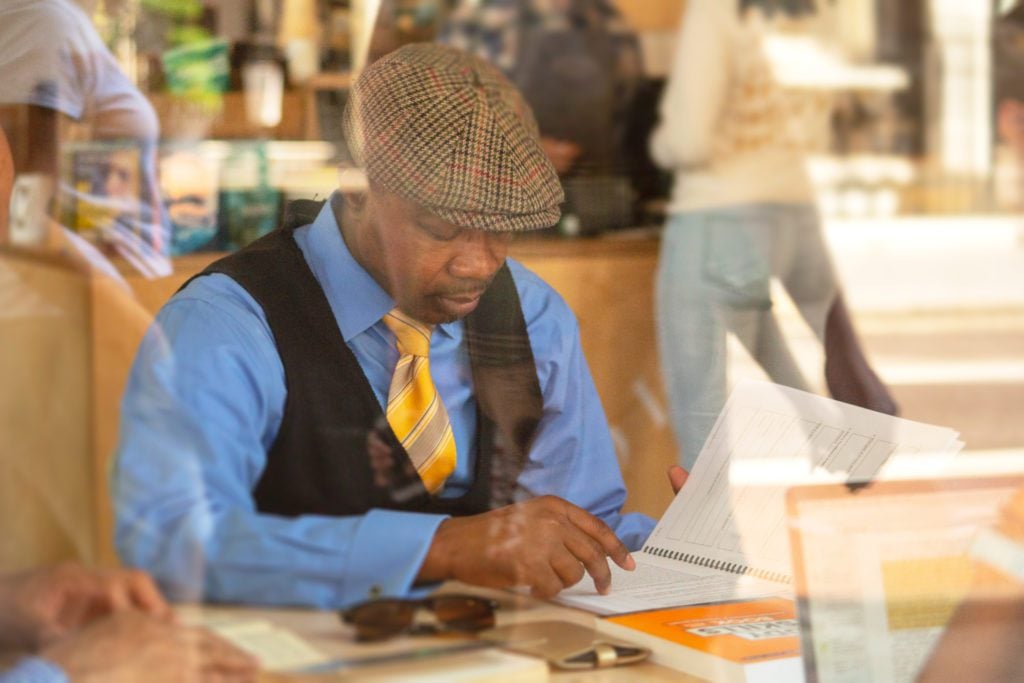Perfectionism and imposter syndrome often come as a package deal – not surprising, as both include having outrageously high expectations and are fuelled by self-doubt.
Given the pressures of balancing studying for a degree with family, work and a social life, students will often have first-hand experience of being a perfectionist and / or imposter syndrome.
But what exactly does it mean to be a perfectionist? And how do you know if you have imposter syndrome?

Perfectionists set themselves unobtainable high goals which they can never reach because they keep moving the goalposts. Their self-worth is based on meeting these standards, so when they (obviously) don’t reach their goals, they become hypercritical and are filled with self-doubt. It doesn’t even matter if the original target’s met as there’s always a feeling they could’ve done better.
Imposter syndrome means that even when the goals are reached, there’s a way to explain away the success. It was a fluke, good timing or a mistake, and everyone will realise that they’re not really up to scratch any minute now.
It’s a perfect catch 22. Life is spent chasing an ideal sense of perfection that doesn’t exist, then hours of self-criticism and a sense of failure when it is not reached. It doesn’t matter what anyone else thinks because you feel like a failure and a fraud deep down inside. What if your boss/teacher/family/friends think you’re incredible? They would say that, wouldn’t they? Only you know the terrible truth of how far from perfection you really are, living in abject fear that everyone will find out soon.
Practically everyone feels this way at times, even incredibly successful people. Einstein, Maya Angelou and Meryl Streep are all quoted as feeling like frauds waiting for everyone else to realise they’ve been winging it the whole time. That doesn’t make it inevitable, and as mothers everywhere are fond of saying, just because they’re doing it doesn’t mean you have to.

So what steps can you take to banish self-doubt and the under-estimation of your skills and abilities?
Self-awareness
Self-awareness is always step one, so identify the negative beliefs you have about yourself. Then, monitor these, noting what they are and when they happen. Keeping a thought diary is a great starting point, and Mindfulness can help you better understand and challenge these thoughts.
Self-worth
Self-worth needs building as it’s our self-defence. When it is weak, we’re easily attacked by negative thoughts, and life is hard enough already, so we need to build this up. Suppose you’re waiting for an epiphany to trigger a self-worth boost. In that case, you’re going to be disappointed with just a nifty excuse for not changing behaviour. Feelings can often be the last thing to change, but they can follow on from behaviour so try acting in a way that increases feelings of self-worth. Positive affirmations are a simple way to start.
Change the way you view success and failure
It’s vital to reframe failure as a learning opportunity rather than a prediction for the future. Remember, success is never a straight line. Just like a warped social media algorithm, we only pay attention to information according to our interests. When perfection is the only goal, any evidence to the contrary is painstakingly analysed with even neutral information interpreted as failure. Next time you find yourself thinking that you can’t do something, reframe it: “I can’t do this…yet”. Charles Darwin was seen as a failure by his school, college and his own father. Still, his persistence eventually proved them all wrong. Evolution in practice.
Challenge black and white thinking
Extreme words like, never, should and always can be unhelpful, leaving us feeling helpless, fearful or angry. Instead, try to identify the emotion behind them. For example, instead of “I always fail everything”, say “I’m anxious about my assignment”. This enables you to do something to solve the problem, like reaching out for help rather than being tempted to quit. Learn more here.
Comparisons to others
rarely bring joy as we only ever compare ourselves to people we perceive as doing better than us and not the millions who see us as aspirational figures. Yes really! Instead of using others as a reference, shift the focus inwards and only compare your own progress. Watch this amazing TED talk.
Be kind to yourself
Be kind to yourself and talk to yourself like someone you love. Remember, we all need help sometimes and talking about our feelings can help. Forgive yourself for mistakes and always celebrate your successes. Watch this short video on how to be kinder to yourself.
If you need more advice, please attend our Wellbeing Engagement Workshops run throughout term.
You can also contact the Disability and Wellbeing Support for information on support and workshops. If you need to talk to anyone outside of the workshops, please email sews@bil.ac.uk

